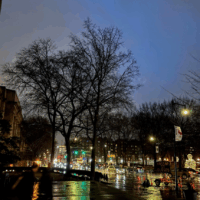MIT’s dozens of makerspaces, dedicated hands-on classes, and experiential programs give you training in modern means of manufacture: what has come to be called a “maker education.”
Our motto
The motto mens et manus—mind and hand—puts equal emphasis on theory and practice. The former you get from learning in the classroom, and the latter from making things, and from trying to make them work.
This “maker education” is at the core of MIT. The Institute has:
- over 40 design/build/project spaces
- a new music and arts innovation makerspace, MIT Voxel Lab
- a training program, MakerLodge, to teach making skills to first-year undergraduate students
- a new state-of-the art community makerspace, the MET Makerspace, in the works
In addition to our research opportunities and independent activities, resources supporting makers at MIT include:
Project Manus
Project Manus maintains an inventory of makerspaces, machines, and resources across MIT. It designed the Mobius app, which helps you figure out which shops to use, provides training and safety guides, and securely stores your access credentials. It also runs a 3D printing service where you can upload a design and have it manufactured on demand.
Edgerton Center
The Edgerton Center hosts student-led clubs and teams, courses in engineering and high-speed photography, and a set of makerspaces where you can design and test your out-of-the-classroom projects.
D-Lab
D-Lab offers classes covering engineering and design, cross-cultural communication, and social entrepreneurship.
Residence halls
Many MIT residence halls have shops or makerspaces run by students that are used to make…whatever you want! Like this:
Project-based classes
Many classes at MIT are project-based, and require you to become a creative, skilled maker-of-things to solve some open-ended problem. Some famous MIT classes that are project-based include 2.007 Design and Manufacturing, which is the academic inspiration for FIRST Robotics; 2.009 Product Engineering Processes, the largest product design class at MIT; and MAS.863 How to Make Almost Anything, which helped inspire the Fab Labs.



